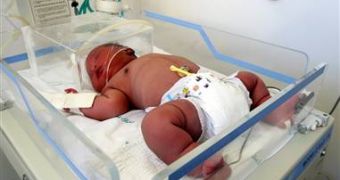Size does matter! Especially when it's about birth weight, with significant and lasting effects.
A new study shows that weighing less than 5.5 pounds (2.5 kg) at birth enhances the probability of quitting high-school by one-third, decreases yearly gains by about 15 % and induces in people in their 30s and 40s the health of a 12 years old person.
The research, the first of its kind, analyzed data gathered in over 35 years on over 12,000 individuals from the Panel Study of Income Dynamics, conducted since 1968 by the University of Michigan Institute for Social Research (ISR).
The data came from study families, plus their descendants who formed their own families. The genealogical design enabled the researchers to compare outcomes for siblings for detecting the low birth weight impact out of common family conditions.
"The study provides the most detailed look to date at how well-being and disadvantage are transmitted across generations within families." said the authors, economists Rucker Johnson at the University of California, Berkeley, and Robert Schoeni at U-M.
"The poor economic status of parents at the time of pregnancy leads to worse birth outcomes for their children. In turn, these negative birth outcomes have harmful effects on the children's cognitive development, health, and human capital accumulation, and also health and economic status in adulthood. These effects then get passed on to the subsequent generation when the children, who are now adults, have their own children," they wrote.
Children with a low birth-weight were 30 % less likely to have a good health compared to siblings with a normal weight and much lower performances on reading, passage comprehension and math tests; these facts make about one-third of them more vulnerable to quit high-school.
Weighing 2.5 kg (5.5 pounds) at birth can be translated in looking like being 12 years older in one's 30s and 40s, by over 70 %.
These cases are nearly twice as likely as their normal birth-weight siblings to experience conditions by the ages 37-52 (23 % versus 12 %). The earning losses of low weight born individuals rose with age, from 10.2 % at the age of 25 to 15.6 % at the age of 35.
A loss of 10 % is registered at ages between 18 and 26, compared to the wages of normal birth-weight siblings, but this increases to 22 % at 37-52. These individuals also work 7.4 % fewer hours in adulthood compared to normal weight born siblings.
The effects were valid even when correlations were made for factors like birth order, mother's age at birth, birth year cohort, race/ethnicity, family structure, parental income, and parental fertility timing.
Low weight birth can be determined by low income and lack of health insurance during pregnancy, but low parental resources boosts the health effects of the low-weight at birth. The effects of low birth-weight on adult labor force participation are double if the adult does not possess health insurance in childhood and 2.7 times larger for the same category.
In the case of the poorest families (with an income under $15,000), an income increase by $10,000 decreased the probability of low-weight birth by 2.18 %, while the same increase had no effect on lower, middle and high-income families.
In fact, babies were much predisposed to being born with low weight when their mothers were themselves born low weight. The racial discrepancies seen in the mid-life in the U.S. could be fully explained by early-life factors, like birth weight, parental family income and health insurance coverage.

 14 DAY TRIAL //
14 DAY TRIAL //